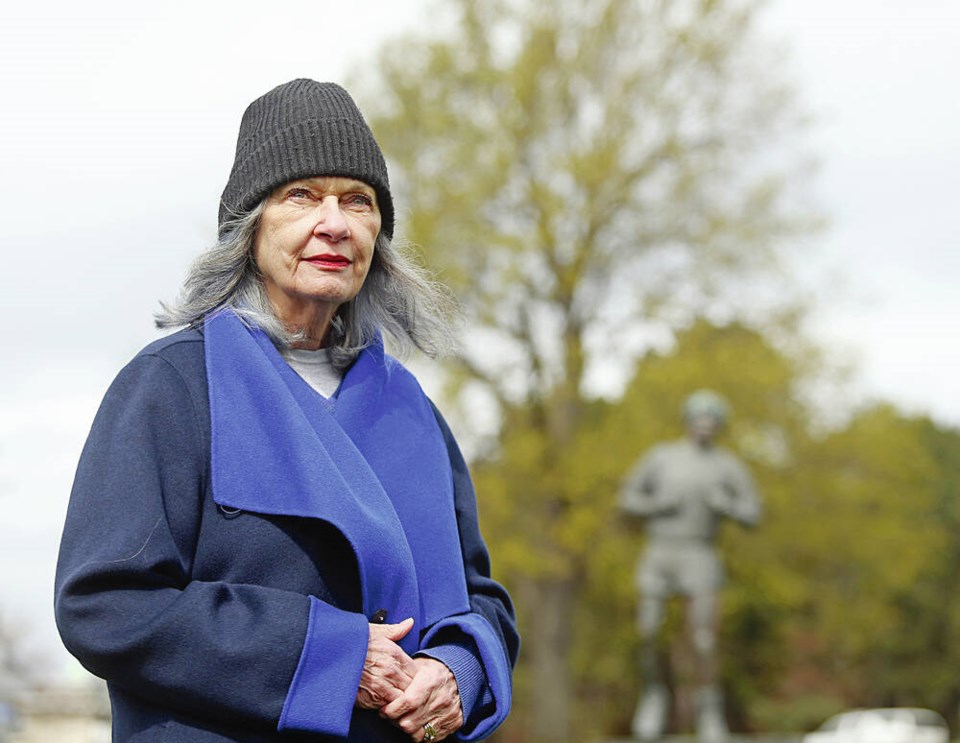Sandra Martin has written obituaries for everyone from Queen Elizabeth II to Margaret Thatcher, Betty Fox — mother of Marathon of Hope runner Terry Fox — Nelson Mandela, Farley Mowat and Jackie Burroughs.
Most recently, Martin, who started writing obituaries full-time for the the Globe and Mail in 2004, wrote one for former prime minister Brian Mulroney.
When she tells the story of an individual’s life and legacy, Martin says, she does it with the reader, not the family, foremost in mind. In that way, her work is different from a family’s death notice.
“I do interviews, I listen, I fact check and I present all the facts,” said Martin, who was in Victoria this week as a keynote speaker at Let’s Talk: End of Life Choices, a community forum sponsored by the Victoria Chapter of Dying With Dignity Canada, set for Saturday at Oak Bay High School.
“As a journalist, I write for the reader, not the family. That means that it has to be true. What I include has to have had an effect on the subject’s life.”
She said that a family’s death notice may sometimes not mention an incident that they consider sensitive or as tarnishing the person’s legacy.
When she was tasked with writing Mulroney’s obituary in February, for example, she included a mention of Karlheinz Schreiber, a German-Canadian businessman who allegedly paid a bribe to Mulroney to ensure the purchase of Airbus aircraft.
“The Mulroney family did not mention the affair in their full-page death notice. While I did not lead with it, I did not leave it out,” Martin said.
Apart from being one of the keynote speakers, Martin, author of A Good Death: Making The Most Of Our Final Choices, will lead a workshop on writing death notices and obituaries in the afternoon of the forum.
Another keynote speaker at the event is Toronto physician Dr. Blair Bigham, assistant professor at the Dalla Lana School of Public Health at the University of Toronto, who has witnessed hundreds of deaths since 2006, some “horrific,” but others “beautiful” — “with the patient interacting with their loved ones in a peaceful and calm atmosphere, with music in the background.”
“These moments are incredibly important for both the patient and their loved ones. Doing so at a time and method of their choosing is preferable to dying alone in the middle of the night, with the sound of alarms beeping.”
Bigham, author of Death Interrupted: How Modern Medicine Is Complicating The Way We Die, said when a patient is too sick to call the shots, medical professionals rely on families and a “grey zone, where law, ethics and religion intersect, to do what is right for the patient.”
“As physicians, we are obligated to the patient, who may have expressed to us their wishes. But sometimes families put their own grief ahead of the patient’s wishes, making it very hard for everyone.”
He said that while ICU doctors typically have the skill-set and humanity to explain the clinical circumstances to a grieving family, he would always try to contact the patient’s family doctor — who may have known them for years — to gain understanding and insight into the patient’s values.
Saturday’s forum will include discussions on topics including dementia, palliative care, medical assistance in dying (MAID), aging in place, end-of-life and emergency-room conversations and family grief.
“The focus of this Community Forum is on end-of-life planning, options and resources, and conversations which will de-stigmatize death and dying and give comfort to all concerned,” said Gwen Anholt, co-chair of the Victoria Chapter of Dying With Dignity Canada.
Admission is $10 and pre-registration is required. The event runs 9 a.m. to 4:15 p.m. on Saturday, April 6 at the Dave Dunnet Community Theatre, Oak Bay High School, 2121 Cadboro Bay Rd.
For more information, or to register, go to dyingwithdignity.ca/upcoming-events/victoria-community-forum.



